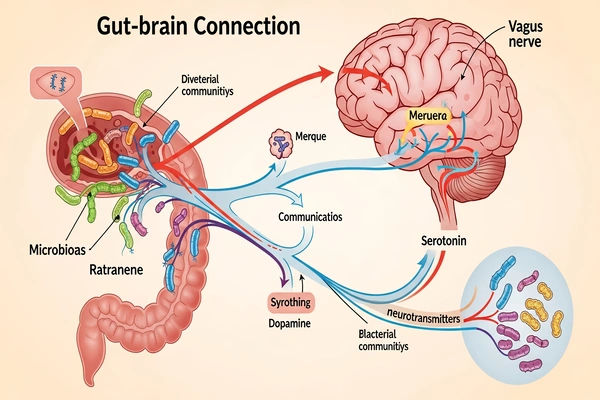- male
- 30 Years
- 29/01/2025
I'm dealing with drooling for the past few months and I've heard it might be from worms in the stomach. I've had worm issues before, so I'm concerned this might be related. How can I put an end to this problem once and for all? Also, I've noticed a big gain in weight over the past couple of years. Could these be connected? What should I do?
Answered by 1 Apollo Doctors
Drooling may be related to various causes, and its important to get an accurate diagnosis from a healthcare provider. Worm infestations are treatable with medications, but they are unlikely to be the direct cause of drooling. For weight gain, a combination of dietary changes, physical activity, and medical consultation is necessary to manage the condition effectively.
Dr. Ibrahim Suggests...
Consult a Gastroenterology/gi Medicine Specialist
Answered 04/07/2025
0
0

More Gastroenterology/GI medicine Health Queries
View allI'm 20 years old and have a height of 5'10'' with a weight of 91 kg. About 4 months ago, I got a checkup, and everything was normal with my ECG and 2d Echo no cholesterol or sugar issues. The only thing was my vitamin B levels were at 93. Lately, I've been experiencing this strange pain every night in my left abdomen, right below the ribs, and sometimes I feel pain in my shoulder, neck area, and even in my arms on the left side. These pains come and go quickly, but the abdomen pain sticks around a little longer. I also have acidity and get reflux at night, with the pain happening around the same time when I'm just settling in bed. I'm just wondering if there's anything I should be concerned about with these symptoms or if there's something I can do to feel better.
Acidity could be the probable cause of your chest pain. U can take tab pan d, orally ,before food for atleast 2 weeks, avoid spicy foods,junk foods and alcohol,.
Answered by 1 Apollo Doctors
I'm dealing with a fatty liver and it's around 14 cm in size. My height is 5 feet 7 inches and I weigh about 79 kgs, which is close to 40 pounds. I'm really looking to know what other steps I can take besides taking medicine to improve my condition. What can I do?
To help manage a fatty liver, in addition to medication, lifestyle changes are crucial. You should focus on maintaining a healthy weight through a balanced diet and regular exercise. Avoid foods high in saturated fats, sugars, and refined carbohydrates. Instead, opt for a diet rich in fruits, vegetables, whole grains, and lean proteins. Regular physical activity, such as aerobic exercise and strength training, can also be beneficial in reducing liver fat. Additionally, limiting alcohol consumption and managing any underlying conditions like diabetes or high cholesterol can help improve liver health. Remember to consult with your healthcare provider for personalized advice and monitoring of your condition.
Answered by 1 Apollo Doctors
I'm curious about ELIXIR NEOGADINERB syrup. Can it actually help boost my appetite? I've been having trouble eating enough lately and I'm wondering if there's anything else you might recommend to help increase my appetite.
Elixir Neogadine-RB syrup is often used to improve appetite and aid digestion. It contains a combination of ingredients that help stimulate hunger. For lack of appetite, you can try this syrup or consult your doctor for other appetite-enhancing options like vitamin B12 or zinc supplements.
Answered by 1 Apollo Doctors
Disclaimer: Answers on Apollo 247 are not intended to replace your doctor advice. Always seek help of a professional doctor in case of an medical emergency or ailment.


